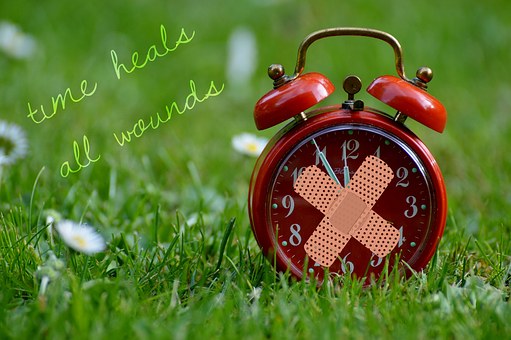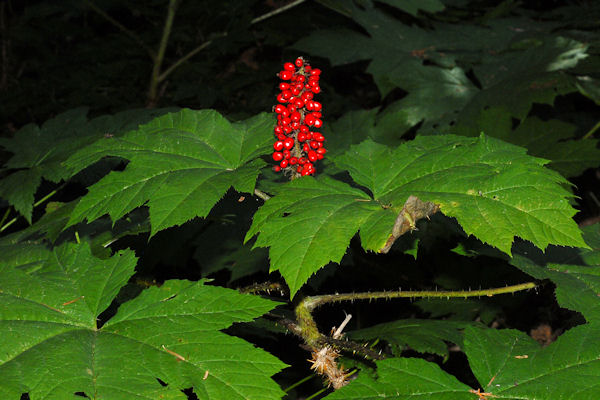You probably heard this saying as often as I have.
But the number of times we heard it does not make it necessarily true. I hope it would be true but I have my doubts.
Looking back at my own life, four year old little Roland shows up, standing in front of his angry dad, trembling. It has been almost sixty years ago, but to this day when confronted with anger, I get easily scared. Only in the last years, since I have been doing consciously healing work around it, it is getting easier. All the years before, when I tried to avoid situations like that, when I learned to express anger, when I trained to receive anger, when I attempted to divert anger into sports or sublimate it into spiritual practices, all this did not really change a lot.
In the last years I changed my approach. Whenever I felt triggered, I take the time to sit with it, to get present with my feelings of fear, of feeling existentially threatened, and with the sadness that is hidden underneath this fear. Lately I can deal with it better, I can stay present longer and I recover faster when I experience anger.
Not only childhood trauma stick with us. Some of the things we carry started even before we were born. Even if we do not know the stories, these traumas of long ago times are written in our bodies. In the case that we are exposed to a trigger, all of a sudden the problem is there, a black-out, a numbness, a fear, an inexplainable sadness might overtake us, signs reminding us that we are dealing with residues of hidden trauma.
Scientists doing trauma research did some very interesting experiments. In one of them they exposed mice to a very comforting smell that all mice love. Then they gave them an electric shock. Pretty soon the mice responded already to the smell with trauma symptoms. They showed their distress in stiffening up, shaking and peeing even without an electric shock. So far, this was not surprising. But now the researchers bred these mice through four generations without exposing any of them neither to the smell nor to the electric shock. Then the fifth generation was exposed only to the smell. Guess what happened? They showed the same trauma responses as the very first generation even though four generations did not experience any trauma!
I thought this was shocking. Nothing healed by itself.
When I see children or grandchildren of war veterans, they often have strong trauma symptoms even though it was not them who had experienced the shocking events. In working with descendants of survivors of war or of the holocaust, I have seen that the less the story of the trauma has been told, the less the following generations are aware of what had happened to their parents or grandparents, the more they suffer, the more they seem to be affected.
In forty years of healing work I do not get the impression that time heals all wounds.
What heals is when we touch the energy that still resides in our bodies from old traumas, when we feel it and connect it with our loving heart. Our heart is the healer and love is the great transformer.
What we all need to heal is a healing relationship. Not often can we do it alone. And we do not need to do it alone.
A homeopathic treatment is a superb way of trauma healing, it is elegant in its energetic approach and often highly effective. The secret of its success is relationship. We are given two relationships that hold our healing path: one is with the homeopathic practitioner, and the other one is the relationship to a being of nature that understands our trouble deeply and that offers a perfect solution for it. This is the homeopathic remedy. Held between these two we can relax, we can feel safe and we can finally heal.
If you know someone who is suffering from an old trauma, think about forwarding him or her this newsletter or pass on my email address Roland@VancouverIslandHomeopathy.com .
Maybe you feel moved to leave a comment and to share what helped you in dealing with trauma. When we share our experiences, then we help each other find our path to healing. The world needs us to heal; because if we don’t, we pass it on. Just like the mice.



Great article, Roland. Oddly enough, I was just speaking to a friend about war trauma just a few hours ago and thought of you. Thank you for sharing. Hope you are well!
Hello Randah,
A war does not end with the date it ends. The consequences of war keep going for generations. Research has shown that the second and third generation suffer the most, more even than the generation that experienced it directly. Imagine the estimated eleven million of women raped during World War 2. Their children and grandchildren struggle every day of their lives in their sexuality and in their relating to the other sex. This all is still war. Many of us are born into it and we think that this struggle is normal. It is not. We need to deal with it and include our ancestors in order not to pass it on or worse to recreate the trauma over and over again.
All the best for you and it is great to hear from you,
Roland
Hi Roland, thank you for your writings. i started the Wim Hof breathing and cold water exposure 6 months ago. while doing the breathing exercises i noticed huge fear coming up, both with the holding of the breath and then with the dizziness after. when i inquired with the wim hof group i was told to keep going, and that the body will bring up what it wants cleared. sure enough the fear left me. after a few months of the breathing and cold exposure, i felt something huge had happened. my body had come out of fight or flight mode, which i have realized it has probably being in for my entire life. i could suddenly see clearly i had been like a horse pulling a cart with someone in it whipping me, while also chasing a huge carrot in front of me with blinders on. suddenly, there was no cart, no whip, no carrot, and not blinders on. just peace. and all my body wanted to do was rest and relax. alot of the things i used to care about i no longer did. at first i was really concerned as the motivation i had always had was gone, and also saw that that motivation was either the whip or the carrot. i also stopped the cold water exposure for a few months as i said my body wanted to rest. and last month i began again and my body now loves it. i used to count down the time i was in the water, now i count my time only to see how long i was in. all my life i have never been able to meditate, and now it is becoming the way of my life. especially when i am in the cold water. what also has been coming up for me is all the trauma i have been through my whole life. kind of like a life reveiw, as well as seeing how being in fight or flight mode has caused me to be a certain way, either fighting or fleeing or expecting either one. always on edge, etc. my parents went through the second world war in England, etc, and am sure that trauma got passed on. i am loving my life and now also find instead of reacting to others, i am able to be with them, and not react or flee. i am almost 60 and wish i had known about this process when i was younger.
This is wonderful example that shows that there are many ways of healing. What matters is that we go for it and find our way, the healing path that fits us, that resonates with us and that we then will commit to. Healing is a path, and your story shows clearly the commitment that is needed to succeed. Thank you for sharing your story, it is very inspiring.
Roland
Hi Roland
Always enjoying your articles.
I feel like I have entered this space recently of touched and untouched trauma, where I can feel the pain but it isn’t necessarily visible to me. I welcome what feelings arise and try not to subdue or avoid them, negate or neglect them, but be there for me, for myself, care and love myself through it. This is the path I am discovering with joyful tears at times that my heart is me, envelopes me and love just pours out when I allow myself to feel. For years, as a teenager and a young adult, I have lived with this fear, mostly unconscious, of not being accepted, so I have created a wall, a barricade of emotions around me. I have enclosed myself so deeply while trying to give pieces of myself to others, while there was nothing there to give to me. I have refused and rejected myself for who I am and only recently, this past year, through a lot of inner work, and uncovering that path ( that is always there) to my heart have I started looking at the infinitely abundant source of love, unconditional love which exists within.
Very beautiful, Marinela. You describe in beautiful words the path to healing. Once when the trauma happened, we were not able to deal with the energy and we shut the feeling down. Healing happens, when we find the lost feeling again and let the love of our heart pour into it. Thank you for sharing your experience with us.